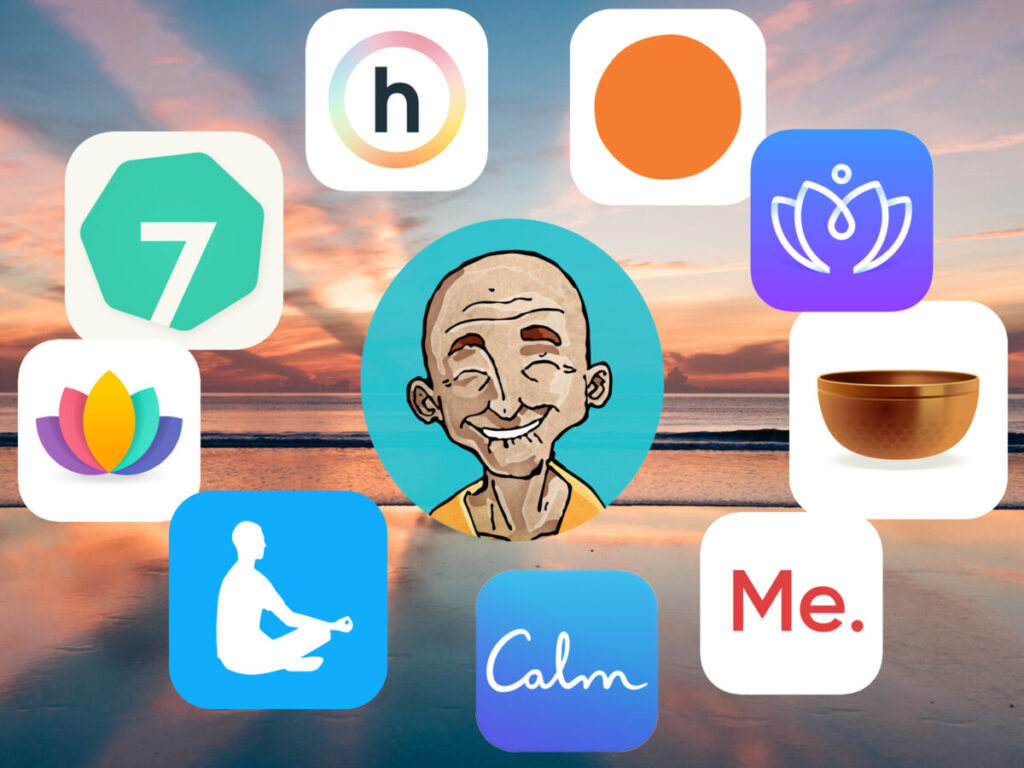Relaxation by mobile phone: that’s what meditation apps promise. Many might think that a time without a smartphone is more relaxing. But we did this calculation without a provider of meditation apps. The Stiftung Warentest has now tested 10 applications. The result: terrifying.

If you search for meditation apps in the Google Play Store or Apple App Store, you will get an almost never-ending list. One application follows the other. Almost all of them promise relaxation and stress relief at the push of a button. But can that work? After all, relaxation should be higher if you don’t have to constantly look at the screen of your smartphone, on which every app vies for your attention and distracts you from relaxing. The Stiftung Warentest has examined ten apps for Android smartphones and the iPhone.
All tested applications offer a guided meditation in German. These include the apps from Headspace, 7Mind and Petit Bambou. The meditation apps cost between 3.25 euros and 12.10 euros per month for one year. Using two psychological consultants with expertise in relaxation techniques have the tester concept, effectiveness, versatility, handling, data protection and tested terms and conditions of the apps.
MEDITATION APPS IN THE TEST: ONLY 2 ARE “GOOD”
Of the ten meditation apps tested, only two left the test laboratory with the grade “good”. Headspace (4.85 euros per month with an annual subscription) offers high-quality courses and exercises designed with scientific know-how that are suitable for both beginners and advanced users, according to Stiftung Warentest. The 7Mind app, which costs 5 euros a month, also fulfills these requirements. In addition, both meditation apps offer soundscapes, music and fantasy journeys. A lot of content can be downloaded and also used offline. In the data protection declaration, however, there are gaps in essential points.
All other meditation apps could not convince the psychologists and testers of Stiftung Warentest. “Often a good concept is missing or the effectiveness is poorly documented,” is the result. Or both. The “BetterMe” app, for example, failed with the grade “poor”. The devastating verdict is: “A cabbage-and-beet concept, no proof of effectiveness, few functions, confusing prices, technical errors and both terms and conditions and data protection declaration only in English.”
MOST ARE JUST “SUFFICIENT”
However, the meditation app “Calm: Meditation and Sleep” is better. After all, she got the
final grade “satisfactory” (2.7). The testers rate the “proven benefit” with the grade “very good” (0.8). In the end, however, the “concept” and the “basic protection of personal data” spoil the rating.
Headspace ( Android / iOS ): good
7Mind ( Android / iOS ): good
Calm ( Android / iOS ): satisfactory
Petit Bambou ( Android / iOS ): sufficient
Insight Timer ( Android / iOS ): sufficient
The mindfulness app – meditation for everyone ( Android / iOS ): sufficient
Meditopia ( Android / iOS ): sufficient
Happify ( Android / iOS ): sufficient
Serenity: meditation, mindfulness and relaxation ( Android / iOS ): sufficient
BetterMe ( Android / iOS ): poor
With regard to the data protection declaration, however, it is not just “Calm” that fails. As the Stiftung Warentest found out, all meditation apps in the test show serious shortcomings. “Providers do not state how long the data collected from users is stored,” is the conclusion. “In addition, some do not provide information about who they may be passing on the data to.”
CONCLUSION
With Headspace and 7Mind there are only two apps that really deliver what they promise. But if you have your smartphone in your hand non-stop anyway, meditation apps are another distraction. Courses with real people as teachers are better here. But we still have one tip. Some providers of meditation apps work with statutory health insurance companies. This also includes Headspace and 7Mind. Whether AOK, BKK or Barmer: Health insurance companies cover the costs for a whole subscription or at least for some courses. Just ask your own health insurance company.


